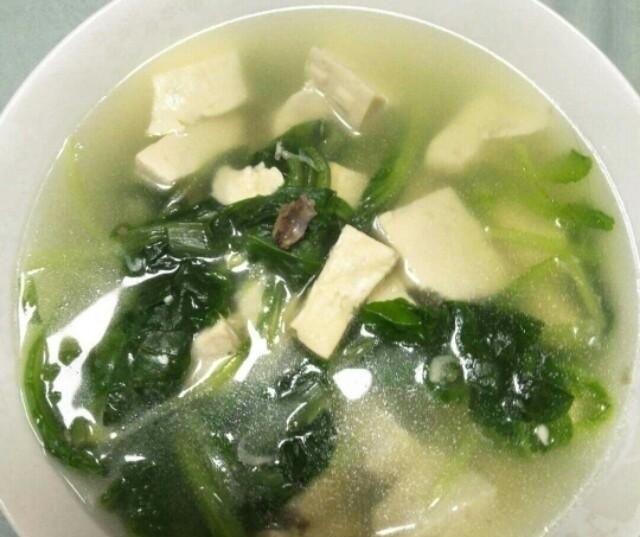Speaking of the Ming Dynasty, it can be described as "a bowl of leftover rice is prosperous, and a bowl of leftover noodles is dead".
Let's start with a bowl of leftovers.
Zhu Yuanzhang fought the world, lost a battle, and fled into the wilderness. Zhu Yuanzhang ran to a small broken temple, cold and hungry, his eyes were black, and he fainted. Just two beggars who wanted food came and put Zhu Yuanzhang into the temple. The beggar built a fire, boiled the leftovers that were coming, and poured them into Zhu Yuanzhang. Zhu Yuanzhang's body was warm, and there was food in his stomach again, so he woke up. He asked for food, what did you give me just now? The beggar thought: There are grains of rice (like pearls), pickles (green, like jade), tofu (white, like white jade), so he said, "My soup is pearl jade white jade soup."

This bowl of leftovers saved Zhu Yuanzhang's life, and only later did Zhu Yuanzhang drive out the Mongols and unify the world. What if Zhu Yuanzhang starved to death? There is no Ming Dynasty. Therefore, the Ming Dynasty is a bowl of leftover rice to prosper the world.
Mr. Liu Baorui's stand-up comedy "Pearl Emerald White Jade Soup", this story is from "Zhu Yuanzhang's Speech".
After Zhu Yuanzhang became emperor, he suddenly felt unwell one day, and it felt the same as when he escaped from the martial arts examination hall and fell ill and broke through the temple. Two beggars boiled him a bowl of soup, and he drank it. Therefore, Zhu Yuanzhang posted the imperial list and offered a reward to find the two beggars of that year, and the result was really found.
Two beggars came to the imperial dining room of the palace and made pearl emerald white jade soup for Zhu Yuanzhang. Zhu Yuanzhang feasted on the courtiers, and when the soup came up, no one drank, and all of them pinched their noses and hid behind. What's going on? The soup is made of steamed tofu, rice pot, stinky swill water, rotten cabbage gang, stinky smelly, smelly want to vomit, who dares to drink?
Zhu Yuanzhang saw that the group of ministers did not drink, and he also felt that the soup was really unpleasant, but he had already given the order, he did not take the lead in drinking, and the group of ministers did not drink, Zhu Yuanzhang was sullen and drank the bowl of soup in front of him. When the courtiers saw that the emperor had drunk it, they had to drink it hard, and when they finished drinking, they all picked up their big fingers and did not speak. Zhu Yuanzhang looked at the music: Dear Aiqing, you mean that each person will come back with two large bowls!
Hahaha!
Let's talk about a bowl of leftover noodles.
After the fall of Beijing in 1644, the Hongguang Emperor first ascended the throne in Nanjing, and only one year later, Nanjing fell and the Hongguang Emperor was killed. In 1645, Emperor Longwu ascended the throne in Fujian, and was defeated and killed in 1646. In 1646, Emperor Shaowu ascended the throne in Guangzhou, and committed suicide in 1647. The Yongli Emperor ascended the throne in Zhaoqing in 1647, turned from north to south, fled east and west, and struggled to support for 14 years.
In 1659, Wu Sangui led the Qing army into Kunming, and the Yongli Emperor Zhu Youluo withdrew west with the general Li Dingguo, and retreated from Guangdong to Guangxi, from Guangxi to Yunnan, and finally crossed the Nu River and crossed the Gaoligong Mountain to Tengchong. Crossing the Nu River, he fled all the way, starving, and the general Li Dingguo found food for the emperor. At that time, Tengchong was a wild place, and there was nothing to eat. A villager poured everything into his house and made him a fried bait block. The Yongli Emperor ate a full meal in the midst of hunger and hardship, and sincerely praised: "This bowl of noodles saved the lonely driver!" Sigh: It's really a great rescue driver. So the locals changed the name of the fried noodle slices to the big rescue car.
After that, the Yongli Emperor retired to Burma and lived in exile. In 1661, there was a coup d'état in Burma, and the new Burmese king captured the Yongli Emperor and sacrificed him to the Qing government. In 1662, Wu Sangui executed the Yongli Emperor in Kunming, and the Ming Dynasty was completely destroyed.
History often bears striking resemblances. The former appears in tragedy and the latter in comedy. But the law of Chinese history is just the opposite; pearl emerald white jade soup is comedy, and the great rescue is tragedy.
A bowl of "pearl emerald white jade soup" and a plate of "great rescue" connect the rise and fall of a dynasty for 276 years, and the founding emperor of the Ming Dynasty and the king of the fall of the country have the same food-related downfall story.